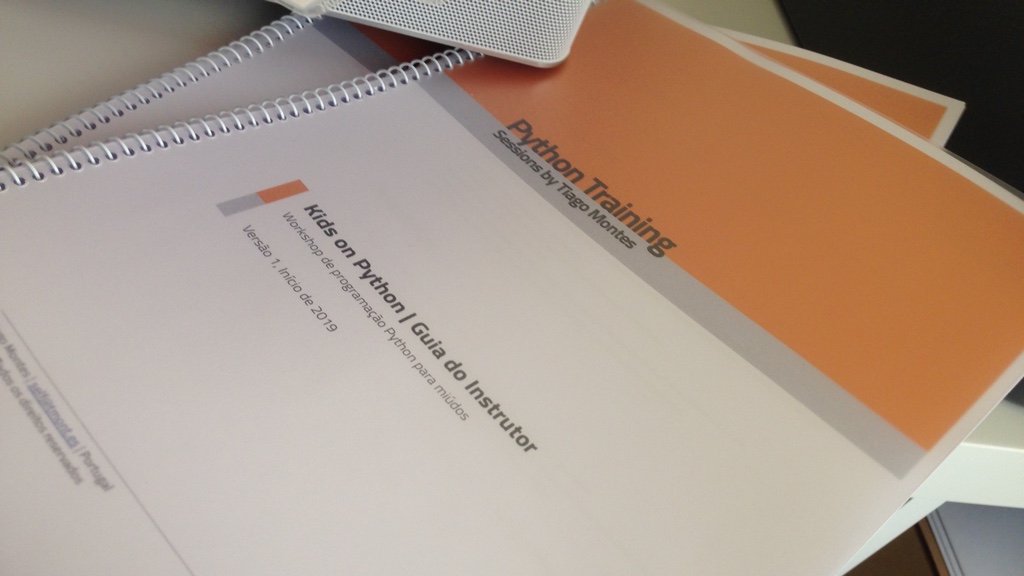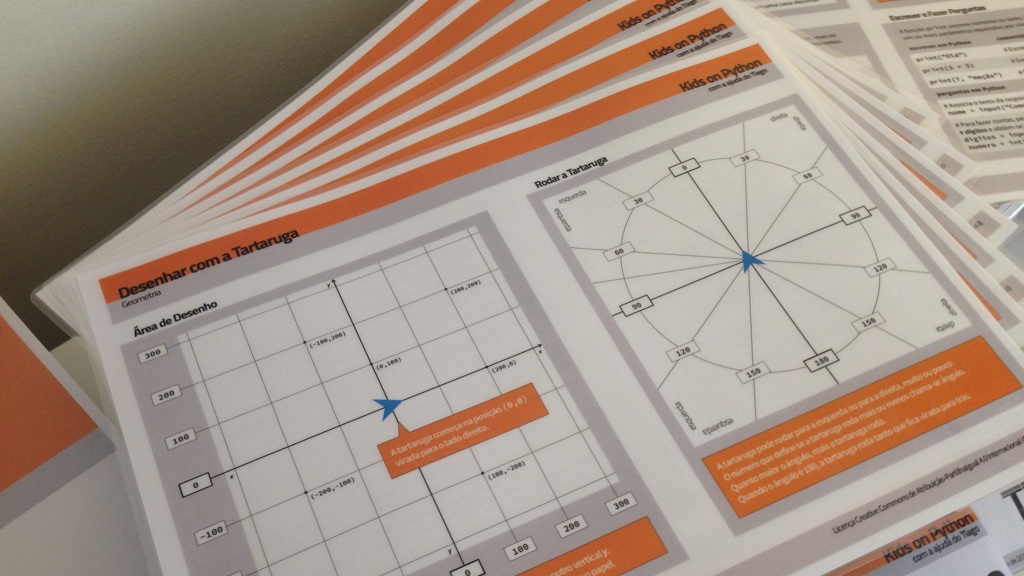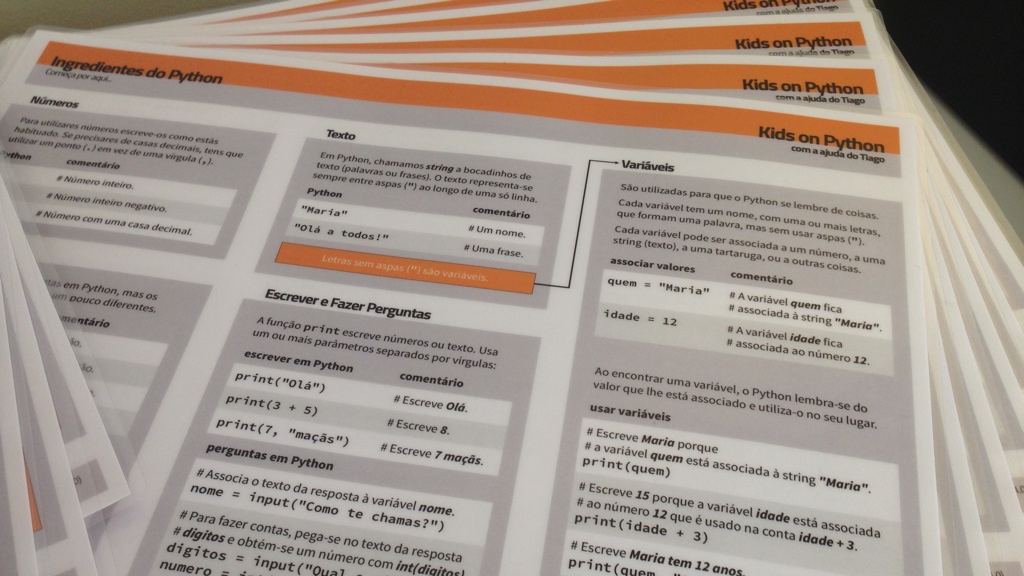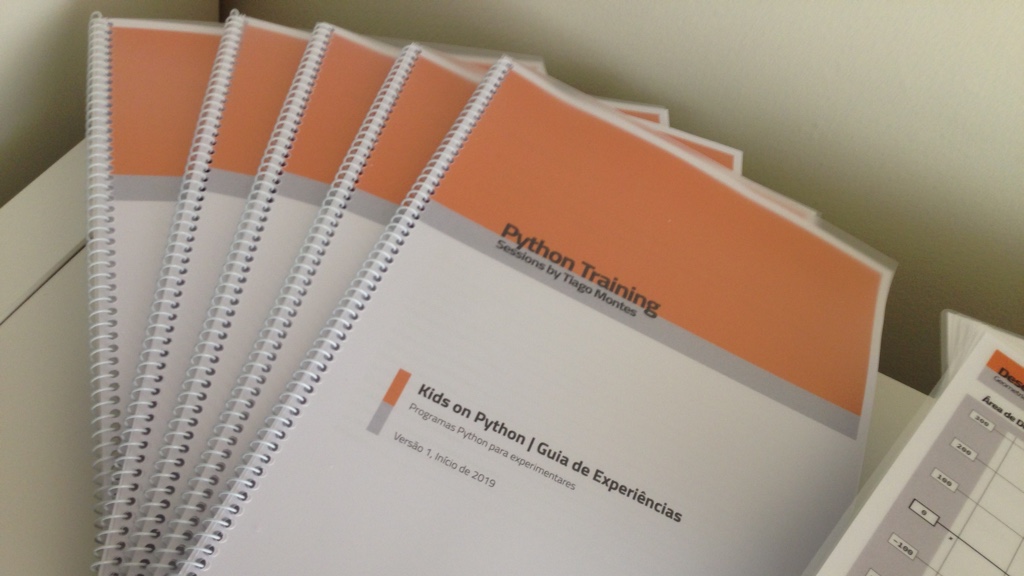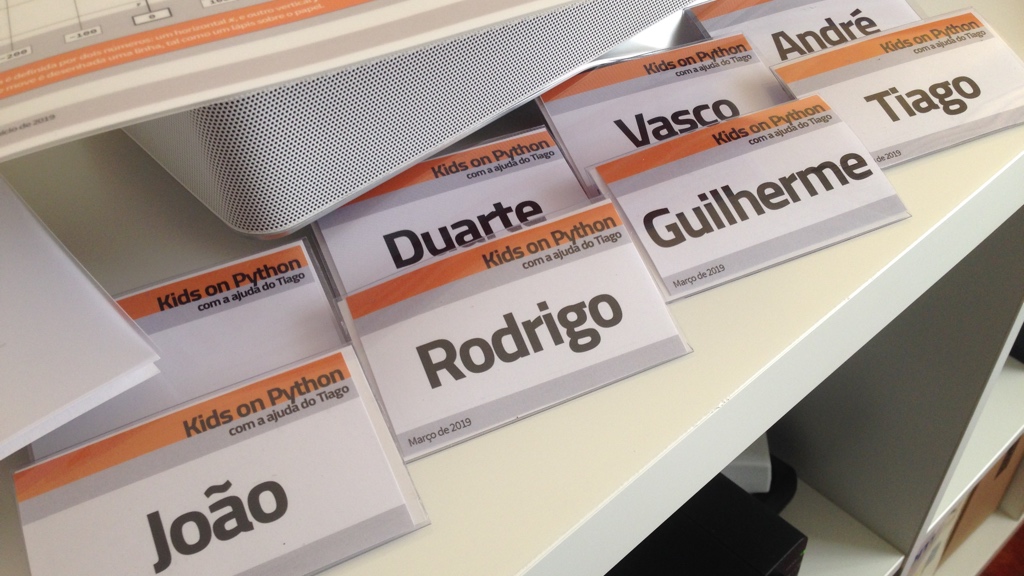Kids on Python is a kids oriented introduction to programming workshop I prepared after having that thought in my mind for quite some time. Unlike my other training offers, I take this one as a personal, close to heart project and, in that regard, I’m sharing all of the materials I prepared to support it under the CC BY-NC-SA 4.0 license: go ahead and use them, redistribute them, adapt them (sharing under the same terms, crediting the source), but don’t use them commercially.
If there’s a single objective, then that’s for kids to understand that many of the devices they interact with on a daily basis — computers, gaming consoles, mobile phones, and more — are programmable. That, and that they themselves can learn how to program them: if they want, they can decide what their devices should do.
That can be very powerful lesson, I say. And there’s more.
Target Audience
The workshop targets kids between 10 and 14 years old, with the following set of skills:
-
Computer usage
Launching and terminating programs.
Moving and resizing windows including, for example, placing two windows side by side.
Basic typing skills, using a word processor, for example, and the ability to copy and paste text.
-
Maths and geometry
Integer arithmetic, including negative numbers.
Familiar with decimal numbers.
Knowledge of the greater than and less than comparison operators, and the symbols<and>.
Ideally, familiar with the cartesian coordinates.
Basic understanding of the English language, while not strictly required, will help significantly: even though kids are encouraged to use their native languages, Python and some of the used modules are English based. Thus, knowing a bit of English lowers some barriers, and makes the learning process easier.
Of course your mileage may vary. Different cultures and educational systems teach kids different things at different times. Maybe English native kids have it easier on one hand, while some others may have very advanced math and geometry skills at an earlier age. My experience is based on working with Portuguese kids which, I suppose, have the same general skills as other kids throughout Europe.
Workshop Delivery
In preparing for the workshop, I do recommend a serious amount of planning and thinking, especially for the first time. Other than, of course, going through the materials, here are a few things you may want to consider:
-
The space
How welcoming and friendly does it feel? Think desks with enough room for computers and paper sheets around them. Think nice chairs and natural light. -
Teaching assistants
How many kids will be joining? They will all need assistance at some point. Can a single person handle all of them? More people might be helpful, including working through the preparation process. -
The computers
Will you provide them or will kids bring their own? Think power distribution. Network not needed. Use the amazing Mu Editor: it’s all you need and is easy to setup on Windows, macOS, and the Raspberry Pi. -
Sharing your display
There’s bound to be some code along moments. Will you be using a projector? A big screen TV? -
Printed materials
I find them very useful, print them well ahead of time. Print the cheat sheets in color and laminate them: makes them beautiful and resistant to constant manipulation. Bind the experiments guide somehow. -
Duration, breaks, snacks.
In my experience, these materials support 8-12h of workshop sessions. How long will each session be? Think about breaks, maybe every hour or so. Think about drinks and food: in a separate table or room!
Talking with the kids’ parents and/or educators ahead of time is precious: what are they looking for? Who is each of these kids? Do not disregard that. And there is certainly more. Give it some thought and please let me know what you would include in this list, will you?
Materials and Sources
Here are the full materials and sources for the workshop, grouped into “Ready to use Kits” and “Document Sources” — originally written in Portuguese, they were later translated to English, with the purpose of turning them into something useful for as many people as possible.
In the “Ready to use Kits” you will find the following directories, containing:
-
mentors-print
What I called the “Mentor/Teacher/Instructor Guide” PDF. -
mentors-files
A set of PDF slides I find useful to support an introduction to cartesian coordinates,
the full workingrace.pyandcapture.pyPython project sources,
and the Python sources for all the experiments in the kids’ “Experiments Guide”. -
kids-print
The kids’ “Drawing with Turtles” cheat sheet PDF,
the “Python Ingredients” cheat sheet PDF,
and the optional “Experiments Guide” PDF. -
kids-files
A set of GIF image files used throughout the workshop (refer to the includedLICENSE.txtandREADME.txtfiles).
A few pictures showing what the printed materials may look like:
In the “Document Sources” archives you will find a directory structure matching the one above, where each of the PDF files is replaced with its LibreOffice or Apple Keynote source file (you may want to use the same fonts, too: Titillium Web, Source Sans Pro, and Source Code Pro). I understand that these formats are neither ideal for collaboration, nor, in the particular cases of the cheat sheets, the best to reach the widest possible audience — I have written a few words about that towards the end of this article and, in the end, inspired by the Zen of Python, I guess practicality did beat purity.
Download them here and enjoy!
| Language | Ready to use Kits | Document Sources |
|---|---|---|
| English (en-US) | kids-on-python-en-US-1.0.2.zip | kids-on-python-doc-src-en-US-1.0.2.zip |
| Portuguese (pt-PT) | kids-on-python-pt-PT-1.0.1.zip | kids-on-python-doc-src-pt-PT-1.0.1.zip |
